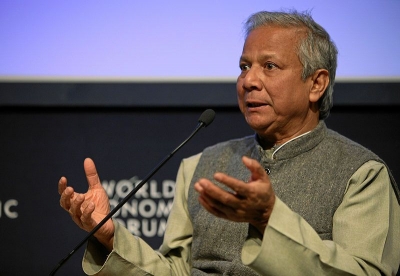
The award was jointly given in 2000 to Nelson Mandela and Grameen Bank of Bangladesh.
Grameen Bank (GB) has reversed conventional banking practice by removing the need for collateral and created a banking system based on mutual trust, accountability, participation and creativity. GB provides credit to the poorest of the poor in rural Bangladesh, without any collateral. At GB, credit is a cost effective weapon to fight poverty and it serves as a catalyst in the overall development of socio-economic conditions of the poor who have been kept outside the banking orbit on the ground that they are poor and hence not bankable.
Grameen Bank’s positive impact on its poor and formerly poor borrowers has been documented in many independent studies carried out by external agencies including the World Bank, the International Food Research Policy Institute (IFPRI) and the Bangladesh Institute of Development Studies (BIDS).
Muhammad Yunus, the bank’s founder, earned a doctorate in economics from Vanderbilt University in the United States. He was inspired during the terrible Bangladesh famine of 1974 to make a small loan of US$27.00 to a group of 42 families so that they could create small items for sale without the burdens of predatory lending. Yunus believed that making such loans available to a wide population would have a positive impact on the rampant rural poverty in Bangladesh.
The Grameen Bank believes that the best way for participants to learn about how the bank works, is through first hand exposure and observations at the field level. Through these experiences, participants are encouraged to draw their own conclusions about the effectiveness of Grameen Bank’s work and the impact it has on the poorest of the poor.
Picture Credit : Google

